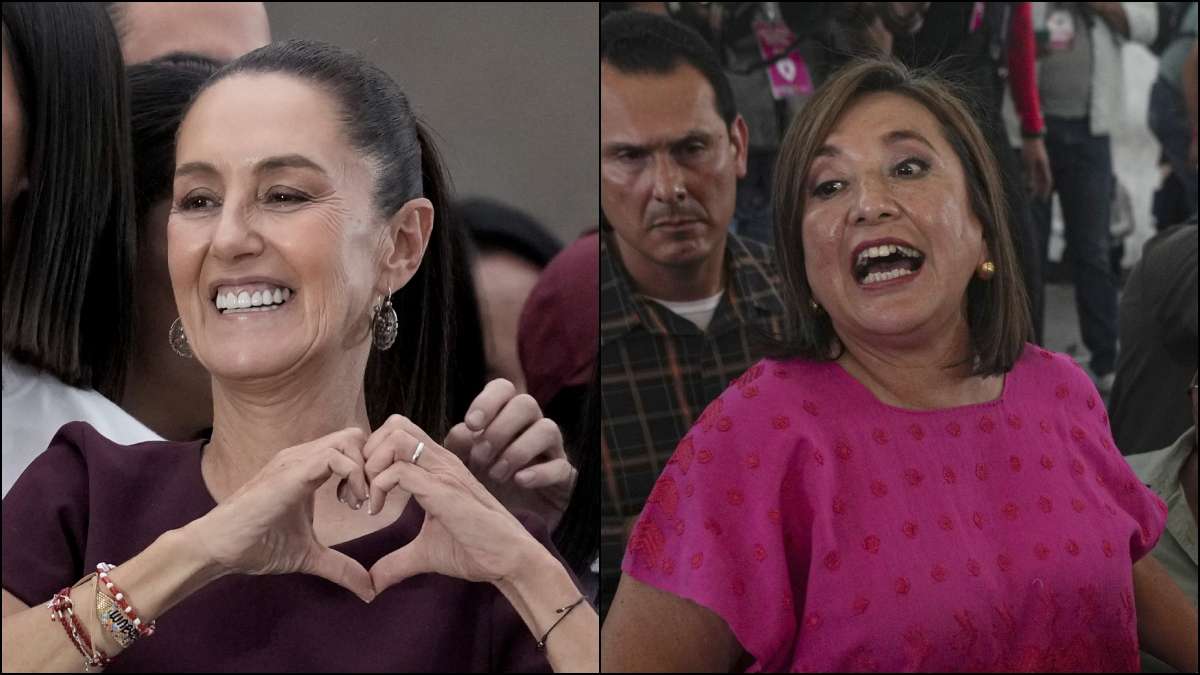
Mexico City: Mexico is going into Sunday’s presidential election with violence marring the final day of its campaigning on Wednesday, with attacks on candidates amid the country’s persistently high homicide rate, which incumbent President Lopez Obrador has failed to redue despite increasing the minimum wage and government benefit programmes. A mayoral candidate Alfredo Cabrera was shot dead in the Guerrero state during a campaign event.
Furthermore, a mayoral candidate Gilberto Palomar in the western state of Jalisco was shot multiple times by intruders in his campaign offices on Tuesday. Palomar and two of his campaign staff were hospitalised in serious condition. Gunmen killed an alternate mayoral candidate Ricardo Arizmendi in Morelos state, just south of Mexico City on Tuesday, by shooting him five times in the head.
Mexico is going to elections on Sunday to chart the country’s path shadowed by cartel violence and hot button issues like gender, democracy and populism. The country will likely elect its first female president on Sunday, along with 20,000 congressional and local positrions are up for grabs. Two candidates – Claudia Sheinbaum of Obrador’s Morena party and opposition nominee Xóchitl Gálvez of National Action Party are facing off against each other.
Who are the female presidential candidates?
Stakes are high in the upcoming elections – as the electoral atmosphere is heating up amid a wave of drug cartel-based political violence, intense polarisation. While forces of angry and charismatic populism are fighting with an income-polarised liberal democracy, issues of national identity, external interference and economic exclusion have dominated the political discourse and divided the country. The ruling Morena Party already holds the governorships of 23 of the country’s 32 states and has a simple majority in both houses of Congress.
However, two women are leading the presidential race in Mexico, which marks a major shift away from the country’s so-called ‘macho’ culture. Claudia Sheinbaum, the former mayor of Mexico City and a member of Obrador’s Morena Party, is leading the race with a double-digit margin and is the most favoured candidate to become the next Mexican President.
Sheinbaum, 61, is a trained scientist and a policymaker who shared the 2007 Nobel Prize for Peace for their work on the United Nations Intergovernmental Panel on Climate Change (IPCC). She is regarded close to President Obrador, having been appointed as the environmental minister of Mexico City in 2000, before being appointed as Mayor from 2018 to 2023. She has promised to continue all of Obrador’s “neo-liberal, market-oriented” policies, such as offering apprenticeships to youths to dissaude them from joining drug cartels.
Sheinbaum will face Xóchitl Gálvez Ruiz, 61, an outspoken former senator, computer engineer and a successful self-made businesswoman. She is backed by a three-party coalition that has dominated the country’s politics since 2000, but are rarely united except for their rivalry against Obrador. Gálvez grew up in a poor household and battled domestic violence by her father to help her family sell street food in the state of Hidalgo.
Gálvez was mayor of Miguel Hidalgo, one of the districts of Mexico City, between 2015 and 2018 before winning a seat in the upper house of Congress. She is an fierce critic of Obrador’s policies, particularly criticising his “hugs not bullets” policy of not confronting the drug cartels. Gálvez also pledged to reconcile a country that has been highly polarised by the outgoing president’s rhetoric and has promised to return funds to the police and guarantee them increased wages. At the same time, she has criticised the left-wing populist’s security strategy, saying “ovaries are needed” to confront organised crime.
The electoral atmosphere in Mexico
Under López Obrador, Mexico has more than doubled its still-tragically low minimum wage to about $15 per day and his Morena party is pitching market-oriented policies like manual labour, subsidies and state-run companies for an edge. Things are not easy for Gálvez, trailing behind Sheinbaum by about 20 percentage points, as Obrador and Morena enjoy widespread popularity. Jorge Alvarez Maynez, a 38-year-old former lawmaker, trails far behind in third place.
Furthermore, Obrador says fighting the drug cartels — which have taken over large swaths of Mexico, extorting protection money from all walks of life — is a foreign idea, one imposed on Mexico by the United States. He has limited cooperation with US authorities in fighting the gangs, but this policy has failed to curb the violence that has gripped the country. The country’s historic homicide rate is high as ever, with more than 30,000 killings per year nationwide.
Sunday’s elections — which will also decide congressional seats and thousands of local posts — are different from those of the past in other ways. About 27 candidates, mostly running for mayor or town councils, have been killed so far this year. While that number is not much higher than in some past elections, criminals have now started targeting entire campaign events rather than focusing only on candidates.
Mexico has also been baking under a heat wave so intense that howler monkeys have literally been dropping dead from the trees. Almost all of the country is suffering some level of water shortage and air pollution has been so bad in the capital, that a fifth of the cars have been banned from driving. Whoever wins the elections will face challenges on multiple fronts, from violence and economy to a future economic policy.
(with inputs from agencies)
ALSO READ | Mexico stage collapse: 9 killed, 63 injured as strong winds topple stage at election campaign rally I VIDEO